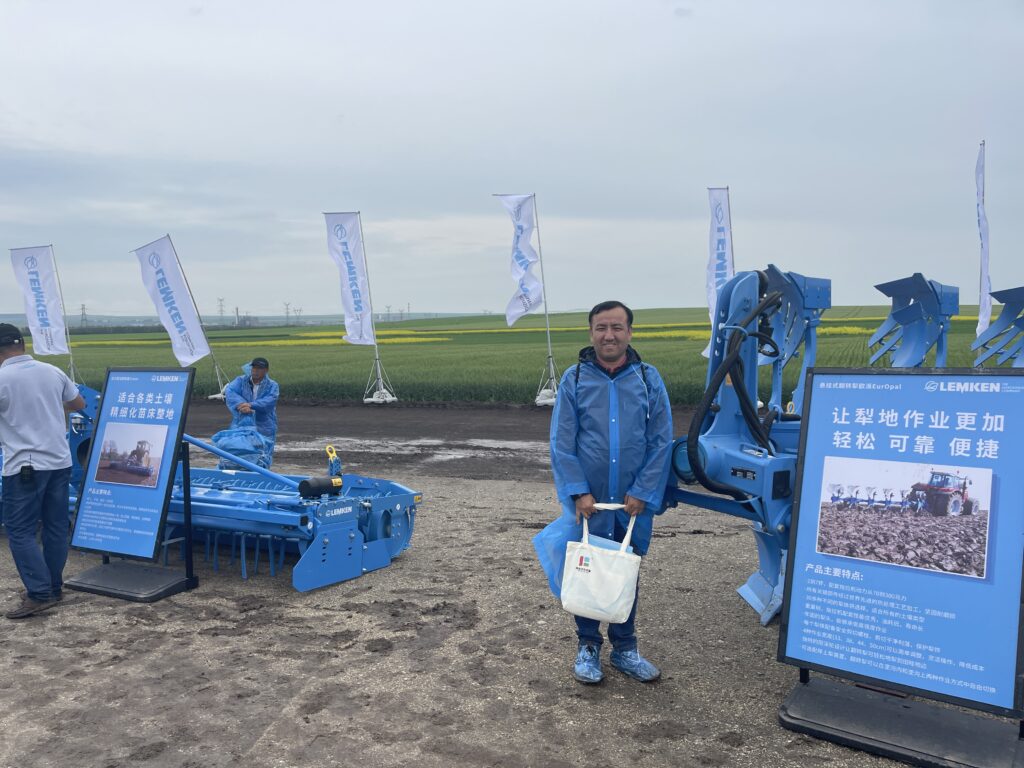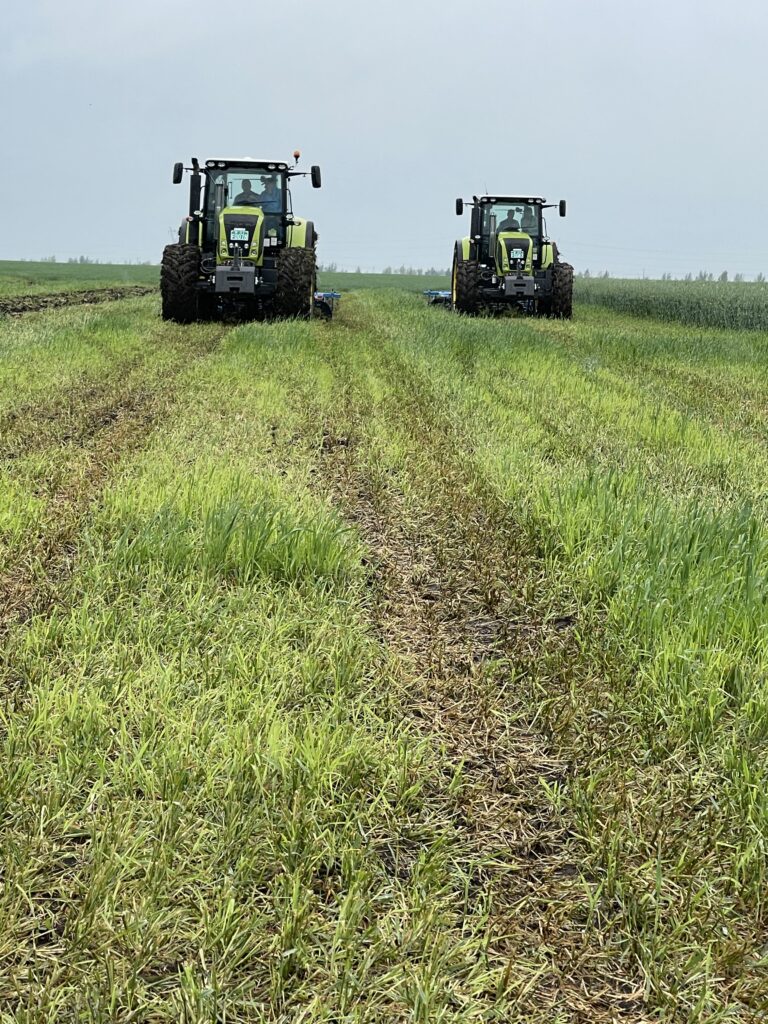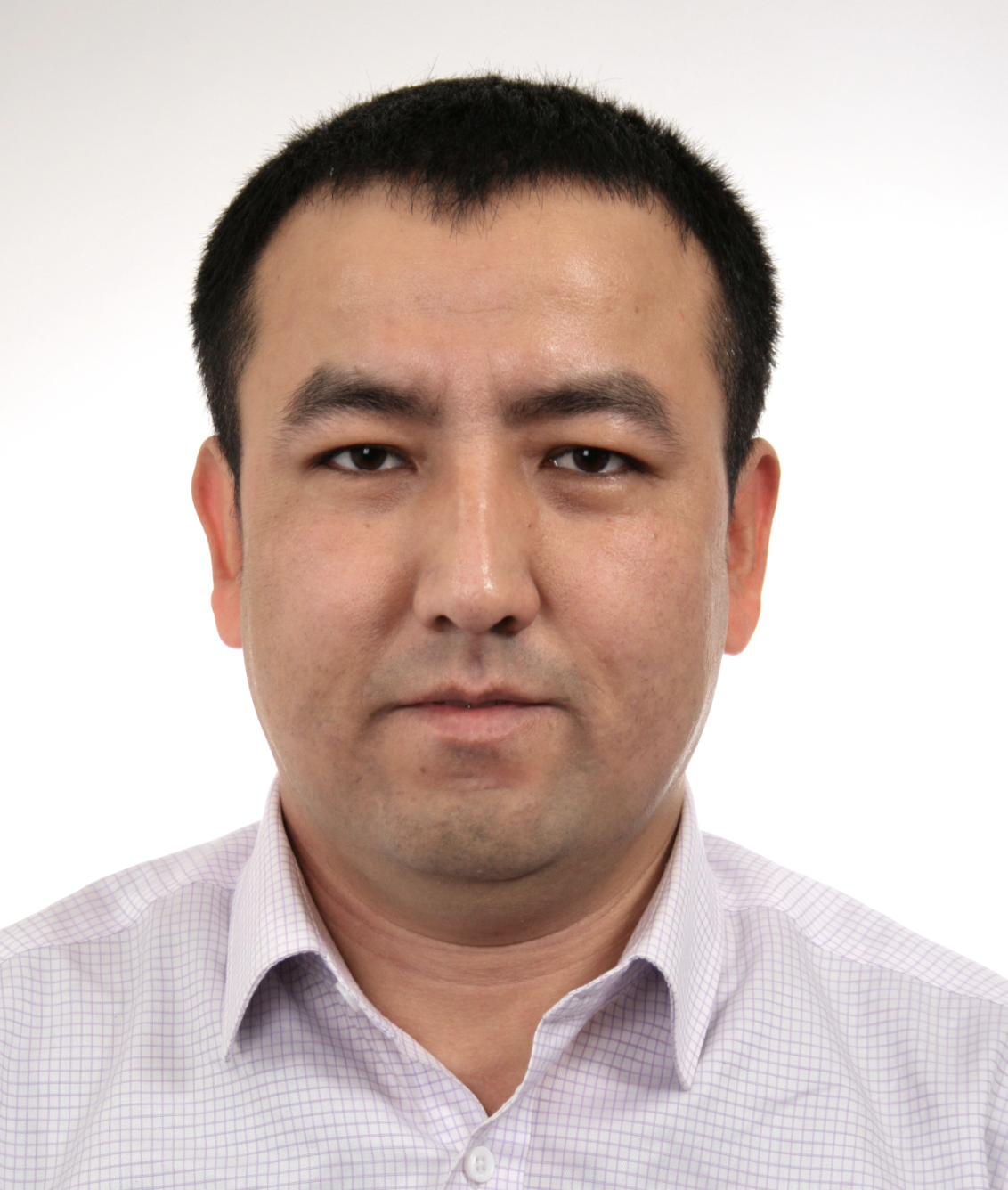On 14-15 July 2023, DCZ expert Ahmatjan Rouzi participated in the 3rd Hulun Buir State Farm Field Day in the Inner Mongolian autonomous region of China at the invitation of Hulun Buir state farm and German agri-machinery manufacturer CLAAS. The event was organized by Hulun Buir and co-sponsored by agri-machinery companies CLAAS, HORSCH, LEMKEN, POTTINGER, AMAZONE, GRIMME, and TRELLEBORG.
Hulun Buir State Farm was established in 2012 after combining Hailaer State Farm and Daxinganling State Farm. It is a diversified big state farm, including cropping and livestock farming, with registered capital of 2.08 billion RMB as of 2022. The state farm owns 400,000 hectares of farmland, 667,000 hectares of grassland, 26,600 hectares of forestland, and 8,670 hectares of water area. Hulun Buir State Farm has many divisions, sub-farms, and smaller companies, currently employing a total of 16, 000 people. Amongst its total farmland area, 133,300 hectares qualify as high-quality farmland, making Hulun Buir the third largest such state farm in China.
Hulun Buir State Farm is unique in its position as one of the top 100 agricultural companies in China. This is due to its intensive application of advanced machinery, digital technology, biotechnology, and sustainable farming management practices. Hulun Buir cooperates closely with many agricultural science and research institutions in China which provide the state farm with the state-of-the-art farming technology and management practices. The People’s Daily hailed Hulun Buir State Farm as the best example of modern agriculture and a great contributor to China’s food security.
First day, 14 July
14 July was the opening day of the Hulun Buir State Farm Field Day. Ahmatjan Rouzi and other participants from the agri-machinary sector as well as government officials and representatives from other state farms traveled to Xie’er Tala state farm, which is a part of Hulun Buir to attend the field day activities.
The event started with a parade of agricultural machines to the main venue near the farm. These included various machines from CLAAS, John Deere, CASE II, MACDON, and New Holland, all of which are currently used at the farm. Ping GUO—Secretary of the Party Committee, Chairman and General Manager of Hulun Buir State Farm, and Director of the Hailar Farm Management Bureau—made opening remarks, introducing the history of Hulun Buir. Jinwang ZHANG, General Manager of CLAAS China, and Michael Ritter, Senior Vice President Sales Asia of CLAAS, also gave opening speeches.
Afterwards, delegates toured various agri-machinery exhibits displayed at the farm site. These included big harvesting and planting machines as well as tires from CLAAS, HORSCH, LEMKEN, POTTINGER, AMAZONE, GRIMME, and TRELLEBORG, with each company showcasing their equipment with on-site field demonstrations. As the main co-sponsor of the event, German agri-machinery company CLAAS presented their harvesting machine TRION 720 with header CONVIO FLEX as well as tractor AXION 2604, 2804 and Greenline machine and big baler QUADRANT 5300. The Chinese Academy of Science (CAAS) also presented their driverless farm machine HonghuT300.
Hulun Buir State Farm also exhibited their farm products such as vegetable oil, yogurt, and other agricultural products produced at the farm.



The exhibition showed Hulun Buir State Farm’s strong ties to German agri-machinery companies. It also demonstrated the advantages of state farms such as Hulun Buir in implementing advanced farming technologies and practices, thereby achieving much higher efficiency than that of China’s smallholder farmers. Due to these reasons, state farms are favored by various Chinese government initiatives to achieve national food security.
Second day, 15 July
On 15 July, DCZ expert Ahmatjan Rouzi and the other participants traveled to Moguai State Farm, another subsidiary unit of Hulun Buir. Moguai State Farm has 12,900 hectares of cropland and 15,733 hectares of grassland as well as 43,000 livestock.
On their first stop, the organizers introduced the national canola production increase demonstration site. On an area covering 77.3 hectares, the demonstration site uses drones and modern irrigation and pesticide techniques to increase per-hectare production to 4,500 kg. The participants also visited the national wheat production increase demonstration site. With a size of 49.4 hectares, the site uses Kechun-8 seeds and aims to increase per-hectare wheat production to 6,750kg. Both of these demonstration sites are contestants in the 2023 national state farm production increase competition.
On their second stop at Yakeshi State Farm with 12,900 hectares of cropland and 8,200 hectares of grassland, the participants visited potato farming. The organizers demonstrated a LEMKEN weeding machine in action at the potato farm. After that, delegates also visited the nearby Yakashi wheat variety experimental farm and fruit and vegetable greenhouses.
After the field visits, the delegates returned to Hulun Buir city for the afternoon workshop on digital state farms. In the first talk, Yixin GUAN, a researcher from the Northeastern China Geography and Agriculture Institute of CAS (Chinese Academy of Sciences), talked about the benefits of leaving straw in the fields, especially for black soil. Left in the fields, straw can reduce soil and water erosion and increase water retention as well as drought and salinization resistance. Yixin GUAN’s research also showed that straw residue in the fields can prevent corn to fall down during typhoons or heavy storms and increase biodiversity.
In the second presentation, Yucheng ZHANG, an advanced engineer for computers at CAS, talked about how to build high-quality farms by using FUXI grids, named after a god in Han Chinese mythology. FUXI grid stands for a nationwide effort to build high-quality farmland across China in grid style by using cutting edge agri-machinery and digital technology. Currently, China plans to build 10,000 such grids. Government, research institutions, technology companies, and state farms have invested heavily in in the plan, resulting in increased production and efficiency. However, maintaining these grids requires further investment and more young talents, Yucheng ZHANG highlighted in his presentation.
Friederike Dörfler, Agriculture Counsellor at the German embassy in Beijing, gave a talk on sustainable agriculture. In the light of recent extreme weather events and climate change, agricultural sustainability is more important than ever, she noted in her talk. Ms. Dörfler also outlined the agricultural situation in Germany and China, highlighting the importance of agri-machinery and technology to achieve the food security goals of both countries. According to her, German agri-machinery technology can help China achieve its food security goals while Germany can learn about the novel experiences and approaches to agricultural digitalization trialed in China. Effective cooperation between China and Germany can help to achieve food security and reduce impact of climate change and create better future for all, she noted in her speech. Ms. Dörfler also acknowledged the role of the Sino-German Agriculture Centre (DCZ) as a platform to promote cooperation and exchange between the two countries.
In the final talk, Martin Leinker from CLAAS presented a round trip through German agriculture. According to him, German agriculture is very diversified. It not only includes food production but also biomass and biogas as well as the preservation of cultural landscapes. He stated that German agriculture has to adjust its policy priorities to German and European climate change and green new deal mandates. Mr. Leinker also listed other challenges facing agriculture, such as soil protection, animal welfare, labor shortage, climate change adaptation, crop chemical reduction, as well carbon emission reduction in the agriculture. His speech made clear that precision farming, i.e., the combination of advanced machinery and digital technology, could help protect the environment and save natural resources while also addressing labor shortages. Mr. Leinker also mentioned the importance of vocational training to provide enough young talents to realize these goals.
Two days of field demonstrations and workshop showcased that a strong collaboration between the Hulun Buir State Farm and German agri-machinery companies is essential to realizing the food security and climate adaptation goals of China and is beneficial for both countries. However, state farms in China still have a lot to work to do to reduce agricultural carbon emissions and cultivate more environmentally-friendly agricultural practices with fewer chemical inputs and only minimal pollutants. Thes challenges will likely also open up new avenues for cooperation between both countries.







